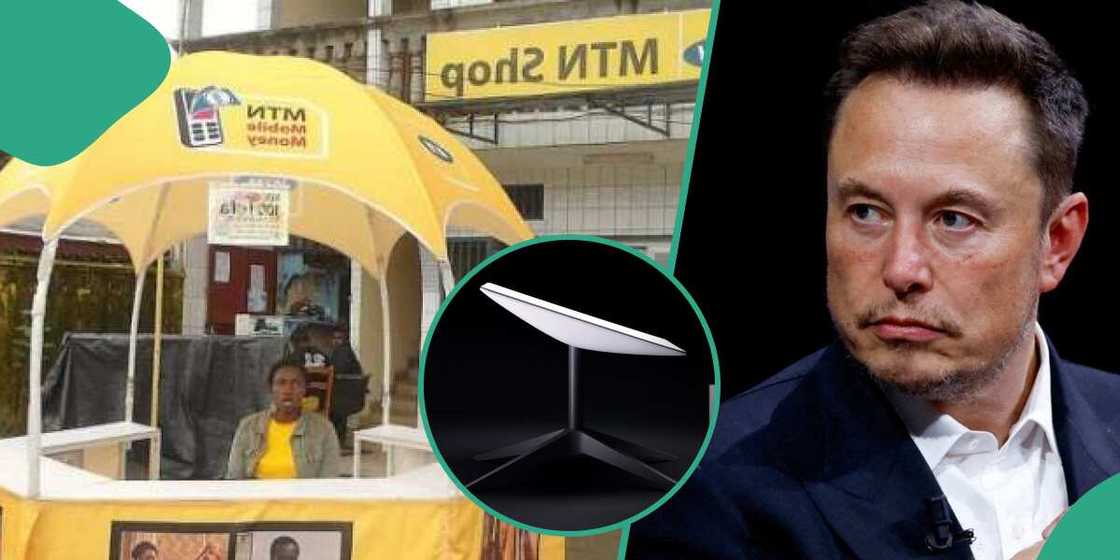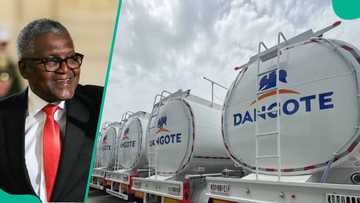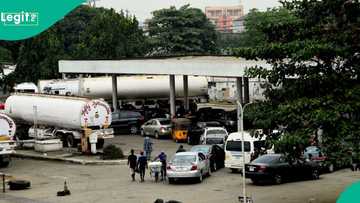- Elon Musk’s Starlink is facing capacity challenges in major Nigerian cities, leading to a halt in sales of its gear
- The satellite internet service provider has alerted subscribers that it is no longer accepting new orders in selected cities across Nigeria
- Experts have said that the development could dent the company’s push for African dominance, after losing subscribers in Nigeria
Pascal Oparada, a reporter for Legit.ng, has over ten years of experience covering technology, energy, stocks, investment, and the economy.
Elon Musk’s Starlink has ceased accepting new orders in some of Nigeria’s busiest urban centres after its satellite internet network reached full capacity.
This development casts a significant spotlight on the inherent challenges of scaling such a service within Africa’s largest market.
Credit: Bloomberg/Contributor
Source: Getty Images
In key commercial areas of Nigeria, including Victoria Island, Ikoyi, Ikeja, and Surulere in Lagos, as well as the nation’s capital, Abuja, Starlink’s website now prominently displays “Sold Out” notices.
A network under strain?
Prospective customers are directed to a waitlist, requiring a deposit to reserve a spot until service becomes available again.
A Starlink engineer confirmed to TechCabal that the company periodically halts new activations to safeguard service quality for its existing user base.
Starlink halts sales again in Nigeria
Expanding capacity typically necessitates either launching additional satellites or securing regulatory approval for broader coverage.
This isn’t the first instance of disruption. Starlink previously froze all new orders across Nigeria in late 2024, citing bandwidth shortages and pending approval from the Nigerian Communications Commission (NCC), particularly concerning pricing adjustments.
Service only recommenced in mid-2025 following necessary upgrades and regulatory clearance.
Starlink increases subscription costs
The company’s escalating costs have compounded these issues. Starlink’s monthly fee has climbed from approximately ₦38,000 ($25) at launch to ₦56,000 ($37) this year.
This increase is attributed to the devaluation of the naira and rising compliance costs.
These hikes have fueled customer backlash and contributed to a slowdown in user acquisition.
NCC data reveals that Starlink experienced its first quarterly decline in Q1 2025, losing over 6,000 active users, a drop from 65,564 in Q4 2024 to 59,509.
This attrition suggests that some Nigerians are opting for more affordable alternatives or discontinuing internet subscriptions altogether.
Musk’s Africa ambitions face real-world challenges
The network congestion in Nigeria directly challenges Elon Musk’s ambitious goal of expanding Starlink into every African market.
If capacity is already overstretched in Nigeria, Africa’s most populous country and one of Starlink’s early adopters, analysts contend that continent-wide rollout will demand not only a substantial increase in satellites and ground stations but also more robust engagement with regulators.
This engagement is crucial for managing pricing, addressing infrastructure demands, and allocating bandwidth effectively.
Despite these challenges, Starlink expanded into Chad in July, marking its 24th African market.

Credit: Picture Alliance/Contributor
Source: UGC
However, Musk’s vision of blanket coverage across the continent remains a distant prospect, with Nigeria serving as both a crucial testing ground and a cautionary tale.
Starlink ranks second-largest internet service provider
Legit.ng earlier reported that Elon Musk-owned satellite internet service provider, Starlink, has become the second-largest internet service provider (ISP) in Nigeria, displacing FiberOne Broadband in the last quarter of last year.
This is according to new data from the Nigerian Communications Commission (NCC).
Despite its expensive pricing, Starlink’s user base has more than doubled in 2024, rising from 23,897 subscribers in 2023 to 65,564 at the end of last year.
Source: Legit.ng


